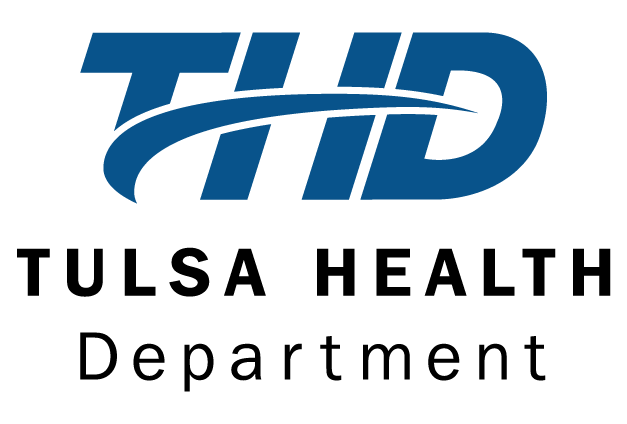TULSA, OK – [August 29, 2013] – More than 250,000 Oklahomans have accessed the Oklahoma Tobacco Helpline by phone or online for coaching and assistance in quitting tobacco since the free service began in 2003. This week marks the tenth anniversary of the Helpline’s launch. Smoking-related illnesses are the leading causes of preventable death in Oklahoma.
The Oklahoma Tobacco Helpline (1-800-QUIT-NOW or OKhelpline.com), a free smoking cessation service that provides coaching and nicotine replacement products to any Oklahoman with the desire to quit tobacco use, is a partner in helping to reduce the toll of tobacco on the state. Smoking costs Oklahoma $1.16 billion in related healthcare costs each year. An estimated $18 million is saved each year in direct medical costs from tobacco users who have quit with the help of the Oklahoma Tobacco Helpline.
The Oklahoma Tobacco Helpline is primarily funded by the Oklahoma Tobacco Settlement Endowment Trust (TSET), in partnership with the Oklahoma State Department of Health, Oklahoma Health Care Authority, Oklahoma Employees Group Insurance Division, and the Centers for Disease Control and Prevention. The Helpline has a 34 percent quit rate for callers who receive multiple coaching calls, while tobacco users who quit cold turkey have a 5 percent success rate.
In Tulsa County, the Tobacco Free Coalition works to promote tobacco use prevention and cessation by helping companies and schools adopt tobacco free campus policies thereby eliminating secondhand smoke exposure; promoting tobacco cessation services; encouraging churches to adopt “Healthy Congregations” by adopting tobacco free campus policies and encouraging healthy eating and exercise. Since 2003, more than 35,000 residents of Tulsa County have called the Oklahoma Tobacco Helpline.
“Educating on the dangers of tobacco use and secondhand smoke is important in helping people get all the information they may need to be ready to quit and support smokefree environments,” said Paula Warlick, chairman of the Tobacco Free Coalition. “Having support during the quit process is key and the Oklahoma Tobacco Helpline has been an invaluable resource for the past decade.”
Each year 6,200 Oklahomans die from a smoking-related illness, according to figures from the Centers for Disease Control and Prevention. Smoking kills more people than alcohol, AIDS, car crashes, illegal drugs, murders and suicides combined.
“Stopping tobacco use is one of the most important things that Oklahomans can do to improve their health,” said Dr. Terry Cline, Secretary of Health and Human Services. “After a decade, the Oklahoma Tobacco Helpline continues to be a great investment to move the needle and make a large-scale impact on the health and prosperity of our state.”
TSET, created by a voter-approved Constitutional amendment in 2000, is a leading partner in helping Oklahomans end their tobacco addiction. In fiscal year 2012, a record 38,732 people contacted the Helpline for cessation services. While many in Oklahoma may have access to services through their health insurance, more than 40 percent of the callers to the Helpline are uninsured. More than 60 percent of Helpline callers have an income of less than $20,000.
In addition to the Helpline, TSET also funds the award-winning Tobacco Stops With Me public education campaign. Tobacco Stops With Me promotes the Oklahoma Tobacco Helpline with educational messages about the dangers of tobacco and secondhand smoke. The Tobacco Stops With Me campaign has reached nearly two-thirds of Oklahomans.
Oklahoma ranks third best nationally in the number of Oklahoma smokers who received Helpline services, according to the North American Quitline Consortium. TSET has a contract with Alere Wellbeing, Inc. to provide the quit-coaching services. Alere employs quit coaches based in Oklahoma to provide services.
“Through strategic, evidence-based efforts – like the Oklahoma Tobacco Helpline — TSET is working to create a healthier environment in our state,” said Tracey Strader, TSET executive director. “Our investments help people stop using tobacco and they reduce premature death and costly chronic medical conditions, including those aggravated by smoking and toxic secondhand smoke.”
TSET funding also supports ground-breaking research at the Stephenson Cancer Center, the Oklahoma Tobacco Research Center and the Oklahoma Center for Adult Stem Cell Research. Community grants across the state promote tobacco use prevention and improved physical activity and nutrition. TSET grants also work to infuse tobacco cessation best practices into hospitals and promote cessation among Medicaid recipients and people being treated for a behavioral health disorder. Through its unsolicited proposal process, TSET funds a variety of programs including a grant to the Physicians Manpower Training Commission that helps doctors repay their student loans if they practice in a rural, underserved area.
Tobacco Settlement Endowment Trust
TSET is a grant making state agency that funds the Oklahoma Tobacco Helpline, public education campaigns to improve health and grants to communities, statewide organizations, and research institutions. The TSET Board of Directors’ strategic plan focuses on reducing cancer and cardiovascular disease – the state’s leading causes of preventable death – by preventing tobacco use and obesity.
Tobacco Free Coalition for Tulsa County
The Tobacco Free Coalition is a CX grantee of the Oklahoma Tobacco Settlement Endowment Trust serving Tulsa County and promoting smoke free environments, tobacco cessation and tobacco prevention. For more information about joining the Tobacco Free Coalition contact Vanessa Hall-Harper, vhharper@tulsa-health.org or 918-595-4226.




